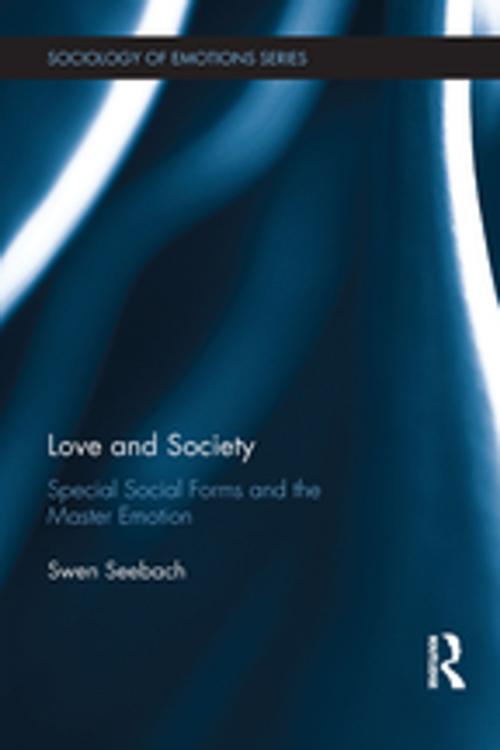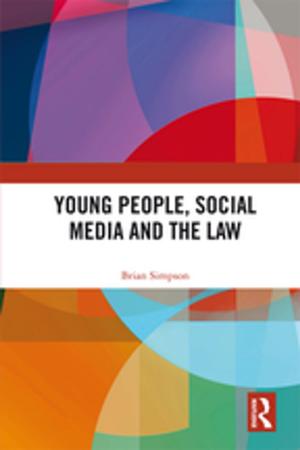Love and Society
Special Social Forms and the Master Emotion
Nonfiction, Social & Cultural Studies, Social Science, Sociology| Author: | Swen Seebach | ISBN: | 9781317621485 |
| Publisher: | Taylor and Francis | Publication: | April 21, 2017 |
| Imprint: | Routledge | Language: | English |
| Author: | Swen Seebach |
| ISBN: | 9781317621485 |
| Publisher: | Taylor and Francis |
| Publication: | April 21, 2017 |
| Imprint: | Routledge |
| Language: | English |
Why does love matter?
Love and Society discusses the meaning and importance of love for contemporary society. Love is not only an emotion that occurs in our intimate relationships; it is a special emotion that allows us to relate to each other in a lasting fashion, to create out of our individual pasts a shared past, which enables us to project a shared future.
Bringing together the idea of Simmel’s second order forms with theories of love, this insightful volume shows that the answer to why love is so central to society can be found in the social transformation of the last two centuries. It also explains how we can build our strongest social bonds on the fragility of an emotions thanks to the creation of "special moments" (love rituals) and "intimate stories" (love myths) that are central to the weaving of lasting social bonds. Going to the cinema, reading a book together or sharing songs are forms of weaving bonds of love and part of the cycle of love. But love is not only shared between two people; the desire and the search for love is something we share with almost all members of society.
With rich empirical data, an analysis of love’s transformation in modernity, and a critical engagement with classical and contemporary theorists, this book provides a lively discussion on the meaning and importance of love for today’s society. It will be of interest to undergraduate and postgraduate students and postdoctoral researchers who are interested in fields such as Sociology of Emotions, Sociological Theory and Sociology of Morality.
Why does love matter?
Love and Society discusses the meaning and importance of love for contemporary society. Love is not only an emotion that occurs in our intimate relationships; it is a special emotion that allows us to relate to each other in a lasting fashion, to create out of our individual pasts a shared past, which enables us to project a shared future.
Bringing together the idea of Simmel’s second order forms with theories of love, this insightful volume shows that the answer to why love is so central to society can be found in the social transformation of the last two centuries. It also explains how we can build our strongest social bonds on the fragility of an emotions thanks to the creation of "special moments" (love rituals) and "intimate stories" (love myths) that are central to the weaving of lasting social bonds. Going to the cinema, reading a book together or sharing songs are forms of weaving bonds of love and part of the cycle of love. But love is not only shared between two people; the desire and the search for love is something we share with almost all members of society.
With rich empirical data, an analysis of love’s transformation in modernity, and a critical engagement with classical and contemporary theorists, this book provides a lively discussion on the meaning and importance of love for today’s society. It will be of interest to undergraduate and postgraduate students and postdoctoral researchers who are interested in fields such as Sociology of Emotions, Sociological Theory and Sociology of Morality.















